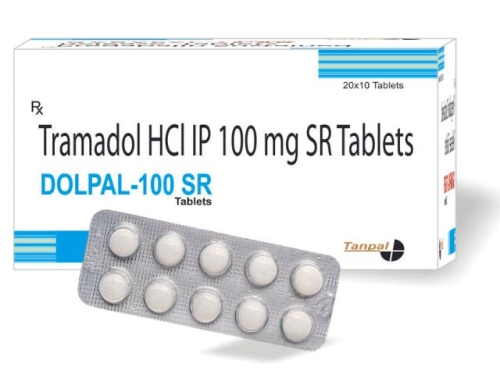Uncategorized
Understanding Tramadol SR 100mg: Uses, Benefits, and Considerations
Tramadol SR 100mg, Tramadol SR (sustained release) 100mg is a medication primarily used to manage moderate to severe pain. As a centrally acting analgesic, it works by altering the way the brain and nervous system respond to pain. Unlike traditional opioid medications, tramadol has a dual mechanism of action, which makes it an interesting option for pain relief.
What is Tramadol SR 100mg?
Tramadol SR 100mg is an extended-release formulation of tramadol, allowing for a gradual release of the active ingredient over time. This formulation helps maintain consistent pain control throughout the day, reducing the need for multiple doses. Typically, tramadol is prescribed for conditions such as:
- Chronic pain conditions (e.g., arthritis)
- Post-surgical pain
- Pain associated with cancer
How Does Tramadol Work?
Tramadol works by binding to the mu-opioid receptors in the brain, similar to traditional opioids. However, it also inhibits the reuptake of norepinephrine and serotonin, neurotransmitters involved in pain modulation. This unique action makes tramadol effective for various pain types while having a lower potential for abuse compared to stronger opioids.
Dosage and Administration
The typical starting dose for adults is 100mg once daily, which may be adjusted based on the patient’s response and the severity of pain. It is crucial to follow the prescribing physician’s instructions regarding dosage to minimize the risk of side effects or dependency.
Tramadol SR should be taken whole and not crushed or chewed, as this can lead to a rapid release of the drug, increasing the risk of side effects.
Benefits of Tramadol SR 100mg
- Extended Pain Relief: The sustained release formula allows for fewer doses throughout the day, providing uninterrupted pain control.
- Lower Risk of Dependency: While tramadol is still classified as a controlled substance, it has a lower risk of addiction compared to traditional opioids.
- Versatile Usage: Tramadol can be used for various types of pain, making it a flexible option for many patients.
Potential Side Effects
Like any medication, tramadol SR 100mg can cause side effects. Common side effects include:
- Dizziness
- Nausea
- Constipation
- Drowsiness
- Dry mouth
In some cases, tramadol can cause more severe side effects such as seizures, especially if taken in higher doses or in combination with certain medications. It is essential to discuss any pre-existing conditions or medications with a healthcare provider before starting tramadol.
Precautions and Considerations
- Drug Interactions: Tramadol can interact with several medications, including antidepressants and other pain medications. Always inform your healthcare provider about all medications you are taking.
- Pre-existing Conditions: Patients with a history of seizures, substance use disorder, or certain medical conditions should use tramadol with caution.
- Withdrawal Symptoms: Abrupt discontinuation of tramadol, especially after prolonged use, may lead to withdrawal symptoms. A gradual tapering of the dosage is often recommended.
- Pregnancy and Breastfeeding: Pregnant or breastfeeding individuals should consult their healthcare provider before using tramadol, as it can affect the fetus or infant.
Conclusion
Tramadol SR 100mg is a valuable option for managing moderate to severe pain, offering extended relief with a lower risk of dependency than traditional opioids. However, as with any medication, it is vital to use it responsibly and under the guidance of a healthcare professional. If you have any questions or concerns about tramadol, consult your doctor to determine the best pain management strategy for your needs.

